Animals
-
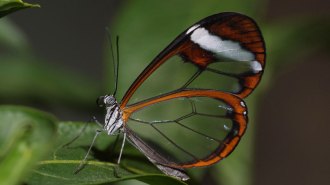 Animals
AnimalsNew images clarify how glasswing butterflies make their wings transparent
Close-up views of glasswing butterflies reveal the secrets behind the insect’s see-through wings: sparse, spindly scales and a waxy coating.
-
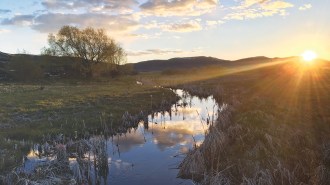 Ecosystems
EcosystemsAs ‘phantom rivers’ roar, birds and bats change their hunting habits
A massive experiment in the Idaho wilderness shows it’s not just human-made noises that impact ecosystems. Natural noises can too.
By Nikk Ogasa -
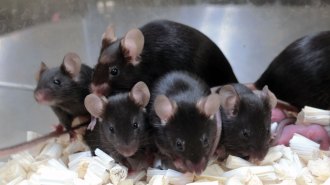 Animals
AnimalsMouse sperm thrived despite six years of exposure to space radiation
A space station experiment suggests future deep-space explorers don’t need to worry about passing the effects of space radiation on to their children.
-
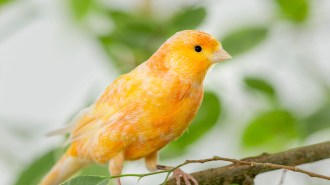 Animals
AnimalsThe mere sight of illness may kick-start a canary’s immune system
Healthy canaries ramp up their immune systems when exposed to visibly sick birds, without actually being infected themselves.
-
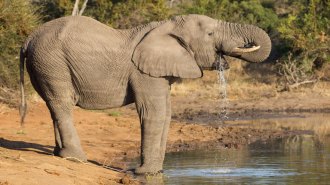 Animals
AnimalsNewly recognized tricks help elephants suck up huge amounts of water
New ultrasound imaging reveals what goes on inside a pachyderm’s trunk while feeding. It can snort water at the rate of 24 shower heads.
By Sid Perkins -
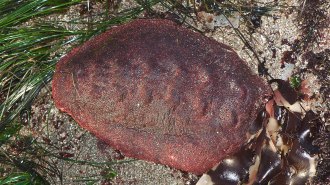 Animals
AnimalsThe teeth of ‘wandering meatloaf’ contain a rare mineral found only in rocks
The hard, magnetic teeth of the world’s largest chiton contain nanoparticles of santabarbaraite, a mineral never seen before in biology.
-
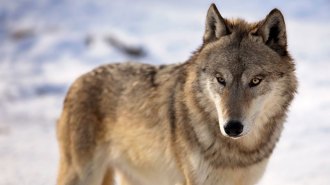 Animals
AnimalsGray wolves scare deer from roads, reducing dangerous collisions
The predators use roads as travel corridors, creating “a landscape of fear” that keeps deer away and saves millions of dollars a year, a study finds.
By Jack J. Lee -
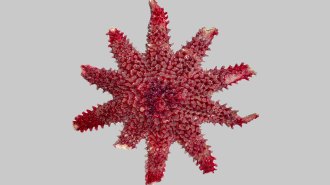 Animals
AnimalsUrchin mobs team up to butcher sea stars that prey on them
Urchins are important herbivores in nearshore ecosystems, but are not strict vegetarians, with hunger that extends even to munching predatory nemeses.
By Jake Buehler -
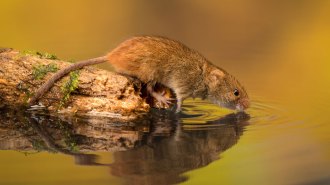 Animals
AnimalsMammal brains may use the same circuits to control tongues and limbs
When mice drink water, they make corrective motions with their tongues that resemble similar adjustments made by primates when they grab for objects.
-
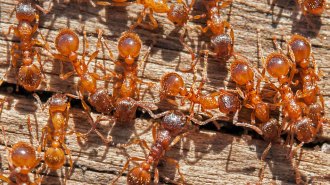 Life
LifeEuropean fire ant chemicals may send spiders scurrying away
Black widows and some other common spider species avoid spaces where fire ants once roamed, suggesting the insects could inspire a spider repellent.
-
 Animals
AnimalsThe U.S.’s first open-air genetically modified mosquitoes have taken flight
After a decade of argument, Oxitec pits genetically modified mosquitoes against Florida’s spreaders of dengue and Zika.
By Susan Milius -
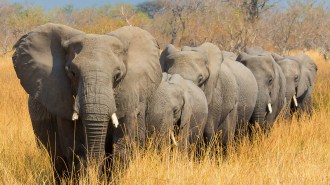 Animals
AnimalsElephants are dying in droves in Botswana. Scientists don’t know why
Some type of pathogen may be behind the recent deaths of 39 elephants, a new wave that follows 350 deaths last summer.